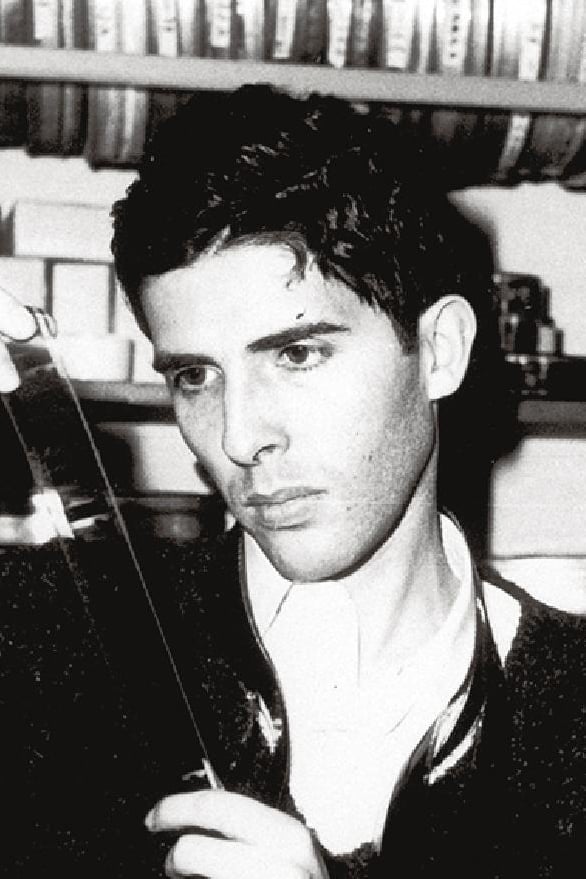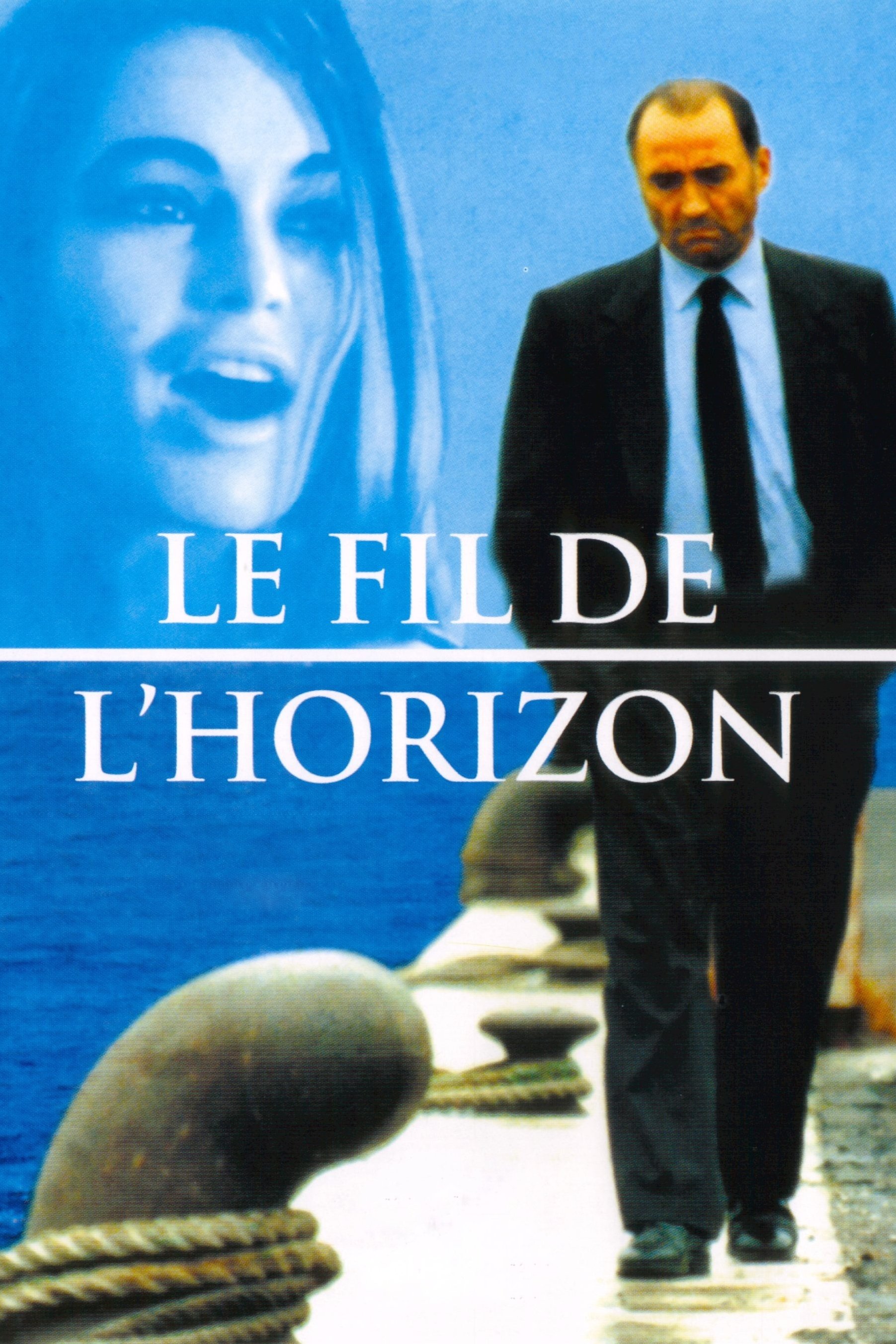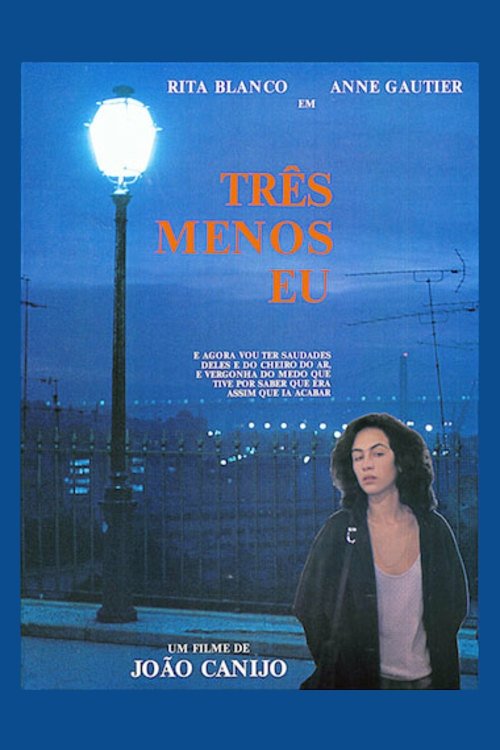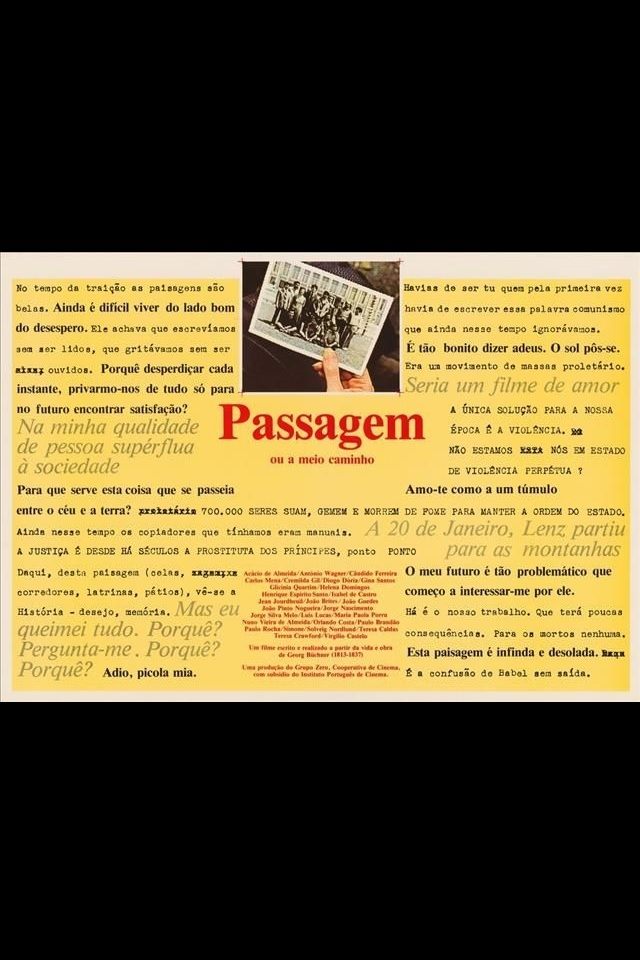
Mesmerized by the songs of Peroguarda villagers in southern Portugal’s Alentejo region, young Portuguese modern poet Antonio Reis, Corsican researcher of Portuguese folk music Michel Giacometti, and film director Paulo Rocha visited the village one after another in the late 1950s. This work refreshes the soul and flows with songs and poetry seeped in sadness, as well as the atmosphere of the quiet sea and village, fields adorned with vibrant red flowers, and roads traveled by Reis and the others, while interspersing images from Paulo Rocha’s films.

The city during the beginning of cinema. The typical city at the time of the dictatorship. The New Lisbon of the New Cinema. Lisbon after the Revolution. The white city of foreigners. A geographical and moviegoer screenplay of Lisbon through the images of films and testimonies of several filmmakers who filmed in Lisbon.

Spino, a pathologist, receives an unidentified body which looks familiar to him... himself, 30 years younger.

Freely based on Gide ('Paludes') and Hawthorne ('Wakefield'), this is a film about a writer who never wrote anything and who blows at nightfall the breath of frost. The poem by Carlos Queiroz to which the above sentences belong is not cited in 'O som da Terra a Tremer', but the atmosphere is that, between written letters never received. Fiction within fiction, stories within stories, like those Chinese boxes in which there is always one inside another. Or the two margins of the same river, always being lateral.

A young woman, working as sales-girl at a shopping center's music shop, wants someone with whom to share her secrets. A distant mother separating from her father, an aunt who emigrated to France, and her pre-adolescent sister, can't do - neither the boyfriend. Such a confident arrives unexpectedly - but then there are three of them, one too much. One leaves, but then another young man arrives, and there are three again. One must go. A sad young adult love story, told in the first person, singular - and ultimately alone, under the rain.

Ambulatory history, freely inspired by Georg Büchner's biography (1813-37) and the reasons that led him first to political intervention and then to strict isolation. With students of unidentified present time (1968? 1970?), the themes developed, in Büchner, are triggered by the publication of "The Messenger of Hesse", a pamphlet addressed to the peasants, urging them to revolt. Their misunderstanding, as well as the repression of the young revolutionaries, leads Büchner to a particularly skeptical and painful attitude...
Paulo Rocha was born on December 22, 1935 in Porto, Portugal. He was a director and producer, known for A Ilha dos Amores (1982), O Rio do Ouro (1998) and A Raiz do Coração(2000). He died on December 29, 2012 in Porto. Abandoned Lisbon Law School to dedicate himself to the movies, and founded Cine-Clube de Lisboa (CCC) with Nuno de Bragança, João Bénard da Costa, Pedro Tamen and Alberto Vaz da Silva. In 1962, concluded his studies at IDHEC, Paris, France, but he says he learned more watching time and again Jean Renoir and 'Kenzo Mizoguchi' films than in academic film studies
By browsing this website, you accept our cookies policy.